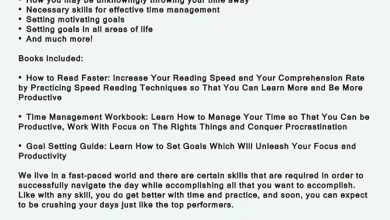Why Are Critical Thinking Skills Necessary As A Student?

Analytical thinking is a skill that is essential for success in academics and life. As students progress through their educational journey, they encounter complex issues, challenging problems, and difficult decisions that require thinking critically.
Critical thinking skills are necessary for a student because they help make better decisions, effective problem-solving, a better understanding of complex issues, enhance communication skills, and academic success.
This article will explore why are critical thinking skills necessary as a student? and how they can benefit their academic and personal lives. We will also discuss ways to develop and apply critical thinking skills in various situations.
What Are The Benefits Of Critical Thinking Skills For Students?
Critical thinking skills are essential for success both in academia and beyond, offering students numerous benefits that help them in their personal and professional lives. In this part, we will discuss the benefits of critical thinking for students:
Improved Decision Making And Problem Solving
Critical thinking skills allow students to approach problems and decision-making in a structured, objective, and analytical manner. It enables them to evaluate multiple options and consider all relevant factors before making informed decisions.
Better Understanding Of Complex Issues
Analytical thinking skills help students break down complex issues into manageable parts, analyze evidence, and identify underlying assumptions and biases. This allows them to form informed opinions and make sense of the world around them.
Enhanced Communication Skills
Critical thinking skills help students communicate effectively and articulate their thoughts and ideas clearly, concisely, and persuasively. It also helps them evaluate the credibility of information and sources and communicate with different audiences.
Success In Academia And Beyond
Developing critical thinking skills leads to academic success by improving grades, increasing retention of information, and developing better problem-solving skills. Critical thinking skills are also highly valued by employers and lead to greater success in the workplace, including increased productivity, higher salaries, and more opportunities for advancement.
Why Are Critical Thinking Skills Necessary As A Student?
Critical thinking is an essential skill that students need to develop during their academic journey. From elementary school to university, critical thinking skills are crucial to a student’s success. It helps students to evaluate information, think logically, analyze and solve problems, and make informed decisions. In this part, we will explore the different approaches and benefits of critical thinking in school, college, and university and how it impacts a student’s academic and personal life.
Achieving Better Grades For A Student
Strong critical thinking skills significantly impact a student’s academic performance, particularly in achieving better grades. Critical thinking skills allow students to analyze complex information, question assumptions, evaluate evidence, and develop well-reasoned arguments and solutions, translating to higher-quality assignments, essays, and exams.
By incorporating critical thinking skills into their approach to learning, students also improve their understanding of course material and retain information more effectively, leading to tremendous success in their academic pursuits.
Critical Thinking In Different Subjects For A Student
Critical thinking is applied to various subjects, involving analyzing, evaluating, and synthesizing information to arrive at well-reasoned conclusions. Below are some examples of how critical thinking is used in different subjects:
- Science: In science classes, critical thinking involves evaluating scientific evidence, analyzing data, and forming hypotheses based on evidence. Students must ask critical questions about scientific claims and evidence to assess their validity.
- History: Critical thinking in history classes involves analyzing primary and secondary sources, questioning historical perspectives, and evaluating the credibility of sources. Students must consider multiple perspectives and biases to arrive at a nuanced understanding of historical events.
- English: In English classes, critical thinking includes analyzing and interpreting literature, evaluating the author’s argument, and constructing logical arguments based on evidence from the text. Students must consider the historical and cultural context of the text and use critical thinking to draw inferences about the author’s intended message.
- Mathematics: Critical thinking in mathematics classes involves analyzing and solving complex problems, recognizing patterns, and constructing logical arguments to prove mathematical theorems. Students must use critical thinking to evaluate the validity of mathematical claims and proofs.
Examples Of Critical Thinking In The Classroom For A Student
Effective learning in the classroom requires more than memorizing information; it involves developing critical thinking skills that allow students to analyze and evaluate information meaningfully. Here are some examples of how critical thinking is applied in the classroom:
- Analyzing and evaluating sources: Encouraging students to question the validity and reliability of sources they encounter in their readings or research and to assess the credibility of the information presented.
- Analyzing and interpreting data: Providing students with data sets and asking them to analyze and interpret the information to conclude.
- Identifying and evaluating arguments: Ask students to identify statements presented in texts or media and to evaluate the strengths and weaknesses of those arguments.
- Problem-solving: Presenting students with a problem or scenario and asking them to develop and evaluate possible solutions.
- Reflecting on their thinking: Encouraging students to reflect on their thinking processes and assumptions and consider improving their critical thinking skills.
- Collaborative learning: Inspiring students to work in groups to analyze and evaluate ideas and arguments and generate creative solutions to problems.
- Debating and discussing: Encouraging students to engage in debates or discussions about topics, ideas, or arguments and to use critical thinking skills to support their views or evaluate the opinions of others.
- Analyzing case studies: Present students with case studies or real-life scenarios and ask them to analyze and evaluate the information presented and to develop solutions or recommendations based on their analysis.
The Role Of Critical Thinking Skills In The Job Market For A Student
Critical thinking skills are highly valued in the job market as they enable individuals to solve complex problems, make informed decisions, and innovate new ideas. Employers seek individuals who think critically, analyze situations, and propose creative solutions in today’s rapidly changing job market.
Analytical thinking skills are precious in fields such as business, healthcare, engineering, information technology, and law, where workers need to analyze data, assess risks, and make informed decisions. Critical thinking skills are also essential in leadership roles where decision-making is crucial to the success of an organization.
Read Also: How To Develop Leadership Skills In Students? A Comprehensive Guide
Importance Of Critical Thinking In Various Fields Such As Nursing And Management
Critical thinking is important in various fields, including nursing and management. In nursing, critical thinking is essential for providing high-quality patient care. Nurses must be able to analyze patient data, make accurate diagnoses, and develop effective care plans. Critical thinking skills also help nurses identify potential complications, evaluate treatment options, and make informed decisions about patient care.
In management, critical thinking is crucial for making informed decisions that impact an organization’s success. Managers must be able to analyze complex data, identify trends, and evaluate risks and opportunities. They also have to think creatively and develop innovative solutions to problems. Critical thinking skills are essential for effective leadership, problem-solving, and decision-making.
Examples Of Successful Critical Thinkers In Different Professions
Critical thinking is an essential skill valued in many professions, and many successful individuals in various fields have demonstrated their ability to apply critical thinking to their work. We will discuss them here:
- Science: Albert Einstein is a great example of a critical thinker in science. His ability to question assumptions and think creatively led to his groundbreaking theories of relativity.
- Business: Elon Musk is a successful entrepreneur who uses critical thinking to solve complex problems in space travel, electric cars, and sustainable energy. His ability to think outside the box has allowed him to create innovative and successful companies.
- Law: Ruth Bader Ginsburg was a Supreme Court Justice known for her ability to think critically about complex legal issues. Her opinions and dissents were often well-reasoned and well-supported.
- Nursing: Florence Nightingale pioneered nursing and used critical thinking to improve patient care. Her emphasis on evidence-based practice and data analysis helped to establish nursing as a scientific discipline.
- Education: Paulo Freire was a philosopher and educator who advocated for critical thinking to empower students and promote social justice. His approach to education, known as critical pedagogy, emphasizes the importance of questioning assumptions and challenging power structures.
- Journalism: Ida B. Wells was a journalist and activist who used critical thinking to expose the injustices of lynching in the United States. Her investigative reporting and data analysis helped to bring attention to this crucial issue.
- Politics: Nelson Mandela was a political leader who used critical thinking to fight against apartheid in South Africa. His ability to analyze complex situations and develop effective strategies for change was instrumental in the movement to end racial segregation.
Read More:
Why Is Critical Thinking Important In Business?
How To Prove Communication Skills? Effective Tips
What Part Of The Brain Controls Critical Thinking?
Conclusion
Critical thinking skills are essential for students as they navigate through their education and into their future careers and daily lives. By developing these skills, students can approach problems and decision-making more thoughtfully and analytically, leading to better outcomes and improved success. Critical thinking is not just about achieving good grades but also about developing an ability to think and reason effectively, which is applied in all aspects of life.
This article highlights why are critical thinking skills necessary as a student, the significance of critical thinking skills in various fields, the examples of successful critical thinkers, and the ongoing need for these skills in education and life. By understanding the importance of critical thinking, students can develop and enhance their critical thinking abilities, leading to more personal and professional success.



